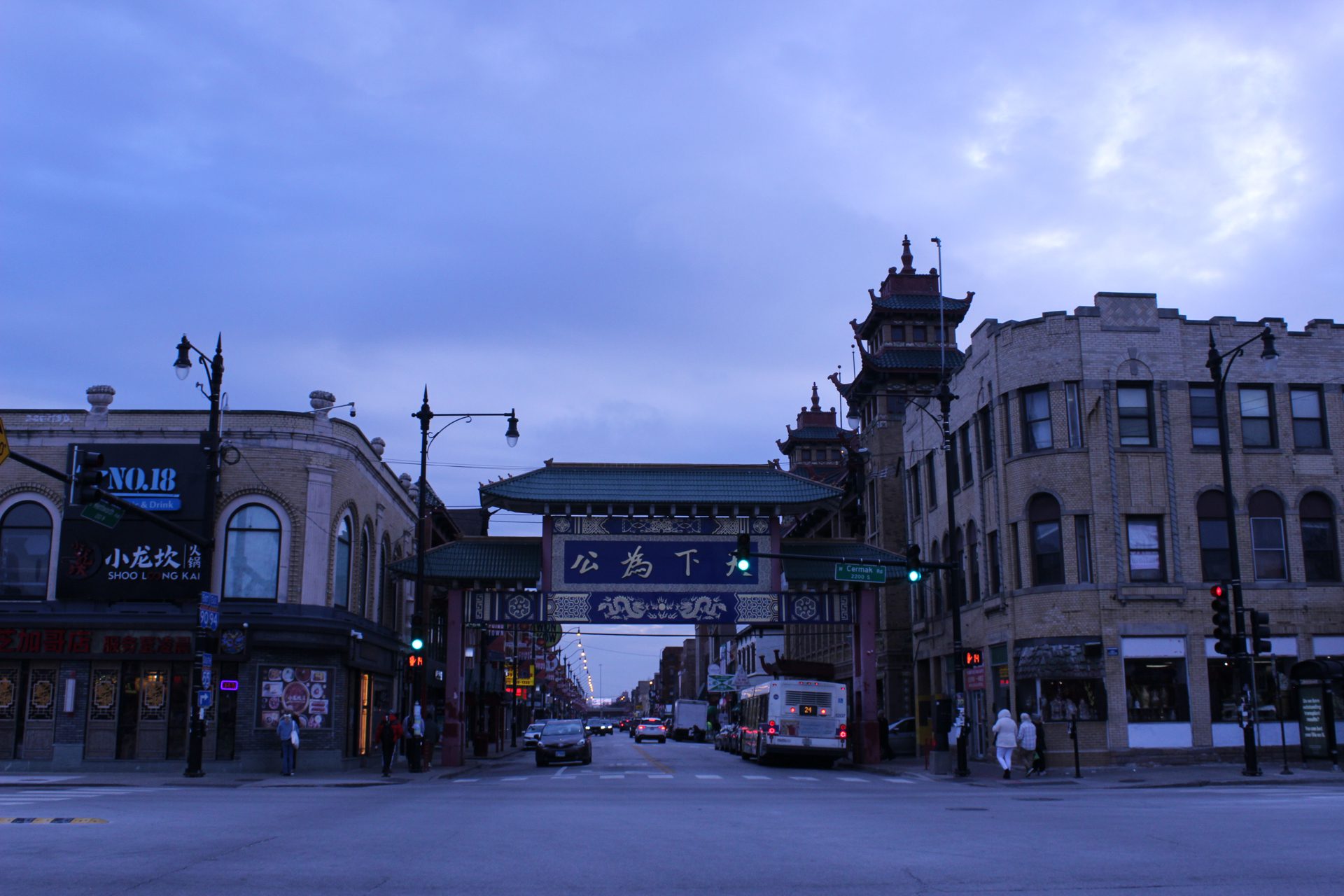 Fatema Hosseini/Borderless Magazine
Fatema Hosseini/Borderless MagazineDonald Trump’s increased support in Chinatown reflects a broader national trend driven by misinformation, economic frustration and shifts in social values, community leaders say.
President-elect Donald Trump made inroads among Asian and Latino voters nationwide last fall during the general election.
According to exit polls, about 40% of Asians and 46% of Latinos voted for Trump in 2024. This marks a significant increase in support from his previous runs in 2016 and 2020.
These shifts were also seen in Democratic strongholds like Chicago. Across the 11th Ward, which includes Chinatown, Armour Square and Bridgeport, Trump secured 36.18% of the vote, marking a notable rise compared to his 26.48% share in 2020. The increase in support was also seen in Latino precincts in Little Village and Brighton Park.
News that puts power under the spotlight and communities at the center.
Sign up for our free newsletter and get updates twice a week.
The rise in support comes amid Trump’s focused attention on the economy and immigration. He will be inaugurated on Jan. 20 and has promised to implement tariffs on imported goods and carry out mass deportations. Economists have said such plans would be harmful to the U.S. economy.
Ahead of his inauguration, local leaders and experts say the shift in support reflects a broader national trend influenced, in part, by misinformation and economic frustrations.
“While Kamala Harris won the 11th Ward overall, it’s clear that Trump’s message, particularly on economic issues, resonated strongly,” said Ald. Nicole Lee. “It’s incumbent upon us as Democrats to take those concerns seriously.”
The Role of Misinformation
Yonggang Xiao, senior civic engagement manager at the Coalition for a Better Chinese American Community (CBCAC), shared concerns about the role of misinformation spread on social media platforms like WeChat, a multi-purpose app used for shopping, watching reels and reading news.
“Some Chinese American voters don’t read any English news,” said Xiao. “Most of them get information from Chinese media, which tends to be more conservative, especially in China.”

Content critical of Trump or supportive of Vice President Kamala Harris was censored or deleted on platforms like WeChat, he explained. “An overwhelming amount of Chinese media supported Trump,” Xiao said. “Misinformation campaigns painted Harris as unqualified,” Xiao added.
Months before the election, a civil rights nonprofit organization, Chinese for Affirmative Action, released a report highlighting a right-wing disinformation campaign on platforms like WeChat and X, formerly known as Twitter.
Researchers found a number of false narratives spread on the platforms, including President Joe Biden and Vice President Harris, were bringing the U.S. closer to communism. Another false narrative included Biden opening the southern border for immigrants to vote in the 2024 presidential election. Noncitizens are unable to vote in the U.S. elections, and the citizenship process is lengthy and takes several years.
Illinois State Rep. Theresa Mah highlighted how misinformation focused on gender and race to discredit Harris. “There were questions about her qualifications as not only someone who’s a woman, but also a Black woman and person of color,” Mah said. “The misinformation focused on questioning her experience and promoting fear-based issues.”
“There was an increase in Chinese voters that went for Trump,” Mah said. “I think that a lot of it has to do with the preponderance of ads in WeChat.”
The CBCAC has been working to counter misinformation on apps like WeChat and promote civic engagement through non-partisan voter education initiatives. Xiao, who moved to the U.S. in 2021, emphasized the challenges of countering deeply ingrained narratives.
Brandon Lee, Director of Communications at the Illinois Coalition for Immigrant and Refugee Rights (ICIRR), acknowledged the fragmented media environment as a challenge.
“I think that immigrant communities have fewer in-language channels… so if there’s only one perspective fueled by a certain political point of view or is pushing particular half-truths, then I think it is easier for that misinformation to spread. It also means it’s more difficult for … a counter message to come through,” he said.
Immigration and Economic Concerns
Elected officials and community organizers said economic concerns, particularly inflation, perceived threats to small businesses and public safety concerns also fueled Trump’s appeal in the ward.
“People in our community are not fans of Trump; they are frustrated with the economy and newcomers,” Xiao said. “They’re influenced by videos on social media that amplify fears of crime and immigration.”
First-time voter Leo Lee, 22, voted for Trump but was not a fan of either candidate. “To be honest, you just choose the one who can do a better job,” he said.
Lee pointed to economic frustration, immigration issues and public safety concerns as reasons for casting his vote for Trump.
“I’m an immigrant myself; I’m not against immigrants. But… the border is…out of control right now,” he said. “People really don’t want a whole group of strangers in their community.”
Read More of Our Coverage
According to data from the U.S. Customs and Border Patrol and Pew Research Center, border encounters hit a seven-year peak in 2023 before falling sharply in 2024. Last June, Biden issued an executive order blocking border crossings for asylum seekers.
Chinatown resident Rosana NG, 68, who moved to the U.S. in 1986, also voted for Trump. NG cited Trump’s comments on undocumented migrants, sexual orientation and abortion as reasons for voting for him. NG disagreed with using taxpayer dollars to support newly arriving immigrants. “Of course, the Bible teaches us to have mercy in helping people, but…then in the U.S., already a lot of poor people need help.”
Xijian Deng, a 66-year-old Chinatown resident who voted for Harris, highlighted concerns about the strain on public resources for new arrivals shared by other Chinatown residents: “Some residents worry that newcomers receive social benefits that could strain resources.”
Despite these concerns, Deng shared her reasons for supporting Harris. “I’m 66 and voted for Harris because of her Medicare plans,” she said. “I have diabetes, and my medication costs over $400 for 90 days. It’s unaffordable, and I’m skipping doses.”
As the community prepares for a second Trump term, community organizers and leaders are committed to fostering trust and addressing voter frustrations.
“We cannot control the result,” Xiao said. “We cannot control people’s minds. We’re just trying to … help people trust each other and support each other, not against each other, not spread out the hate.”
Implications and Moving Forward
The 11th Ward’s support for Trump reflects a broader trend of Republican gains in urban areas, particularly among immigrant communities.While Kamala Harris secured 78.25% of the vote citywide, her support dropped compared to Joe Biden’s 82.53% in 2020. Trump’s citywide vote share grew from 15.83% in 2020 to 20.56%.
Ramanathan Kumar, a political science professor at the University of Illinois Chicago, urged caution in interpreting these results as evidence of a long-term political shift. “What might be happening is the actual gains in Trump’s support are pretty small, but a lot of voters who turned out for Democrats in 2020 didn’t turn out in 2024,” he said.
In 2024, 775,699 Chicagoans voted for Harris and 203,817 voted for Trump. Four years earlier, just under 950,000 people voted for Joe Biden, compared with 181,234 voters for Trump.
Kumar emphasized the importance of contextualizing these results. “There are very specific conditions that have changed from 2020 to 2024 that might not last…it’s too early to say that there are long-term realignments taking place,” he said. “We need to look for factors not only in some of the increased support for Trump but also the decreased turnout for Democrats.”
Fatema Hosseini is a Roy W. Howard Investigative Reporting fellow covering immigrant communities for Borderless Magazine. Send her an email at [email protected].


